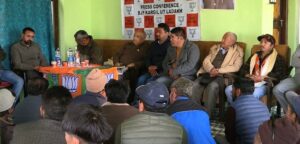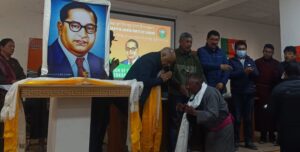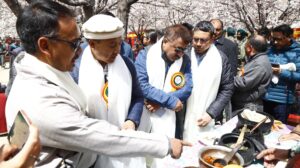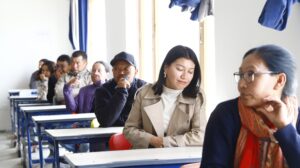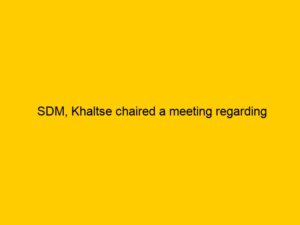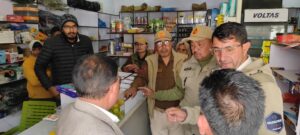Chief Justice (A) visits the only Govt Inclusive School at Chuchot Yokma, Leh
Leh, September 21, 2024:In a step towards ensuring the well-being and holistic development of specially-abled children in UT of Ladakh, Justice Tashi Rabstan, Chief Justice (A), High Court of J&K and Ladakh, today visited the only Govt. Inclusive School at Chuchot Yokma, Leh. The visit aimed at reviewing the quality of care, educational standards and the infrastructure available to the students who require specialized attention.
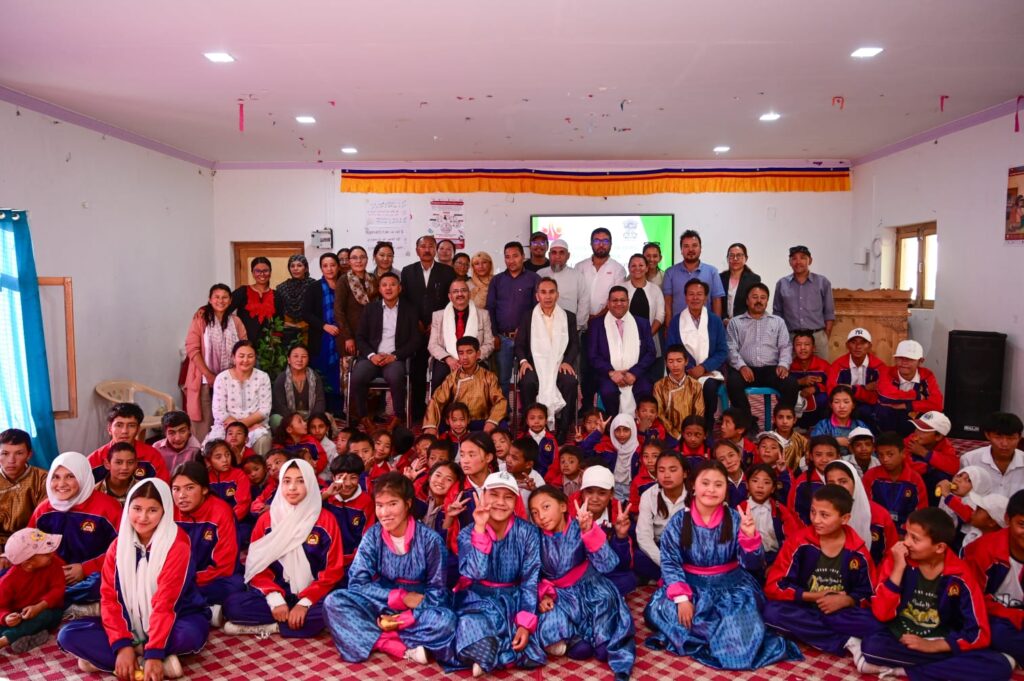
Upon his arrival, Justice Tashi who was accompanied by M. K. Sharma, Pr. Secretary and Amit Kumar Gupta, Member Secretary, J&K Legal Services Authority also holding the charge of Member Secretary, Juvenile Justice Committee, High Court of J&K and Ladakh was warmly received by Phunsung Angmo, Secretary, DLSA Leh, Chemit Yourgiyal, Secretary, DLSA Kargil, Nema Stanzin, Deputy Chief LADC, Leh, Sonam Wangchuk, Chief Education Officer, Mohsin Ali Khan, Head Master, Ms. Ladol, Sign Language Special Teacher, other staff members and students of the school.
During his visit, Justice Tashi closely examined the infrastructure in the school, including classrooms, activity center, residential facilities, Multipurpose Hall etc and praised the school administration for creating an environment where all the children, regardless of their abilities can learn and grow. He also acknowledged the school’s efforts to ensure that students with special needs are not only provided with a quality education but also have access to extracurricular activities such as cultural programs, sports and arts. These initiatives play a crucial role in fostering self-confidence and holistic development among the children, he noted. On the occasion, the specially-abled students also presented a cultural program.
Justice Tashi also reviewed the residential facilities provided by the school to cater the students coming from distant villages. He appreciated the arrangements made for their accommodation and urged the school management to continue offering a safe and nurturing environment. Justice Tashi also stressed the importance of regular medical check-ups for the students and directed the authorities to maintain consistent access to healthcare services, including therapeutic support and counseling to enhance the overall well-being of the children.
Justice Tashi interacted with both staff and students of the school which has a total strength of 98 students, out of which 35 are Specially-abled and for their well-being, 04 Special teachers are appointed for providing specialized education tailored to the needs of its specially-abled students. The school offers four days a week of targeted therapy sessions, including occupational and physical therapy aimed at addressing the unique needs of these children.
During the interaction, various issues were raised, including the deficiency of teaching staff, speech therapists, physiotherapists, drivers, sweepers for the hostel, and a permanent warden. Justice Tashi assured that all the issues raised would be taken up with the Administration of UT of Ladakh at the highest level for their prompt redressal. He further emphasized the need for continuous improvement in the care and educational support provided to the children and lauded the dedication of the teachers and management, and encouraged them to continue their efforts toward creating an inclusive atmosphere where every child is valued and given the opportunity to reach their full potential.
Justice Tashi expressed his appreciation for the warden of the hostel, Ms. Lamo for her efforts in taking care of the specially-abled children besides fostering an inclusive learning environment and assured the institution of continued support in enhancing its facilities and programs. The visit marks a significant step in promoting inclusive education and highlights the ongoing efforts to address the unique challenges faced by specially-abled children in Ladakh and reflects the judiciary’s broader commitment to ensuring that marginalized and vulnerable sections of the society, particularly specially-abled children are supported and empowered.

